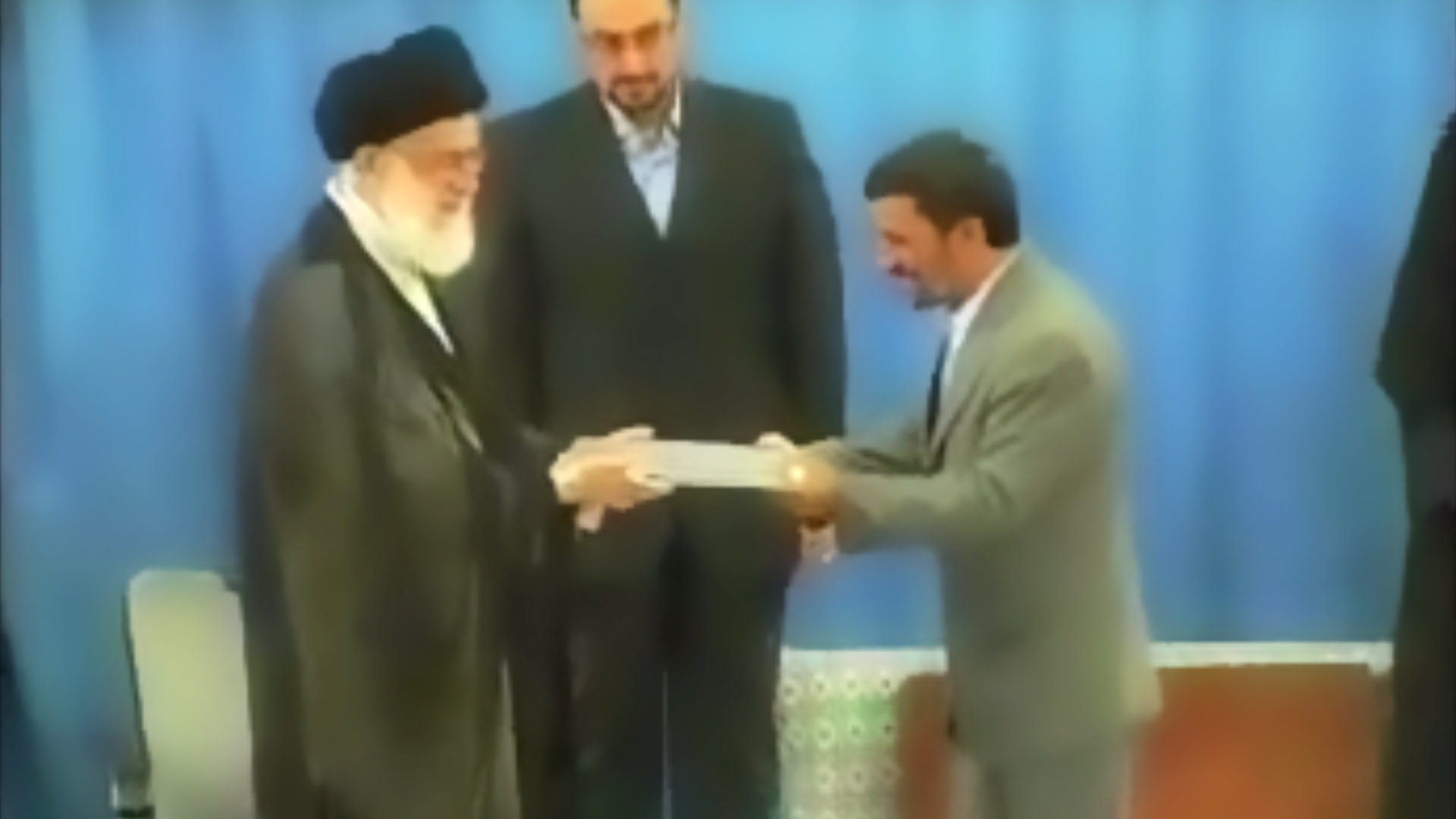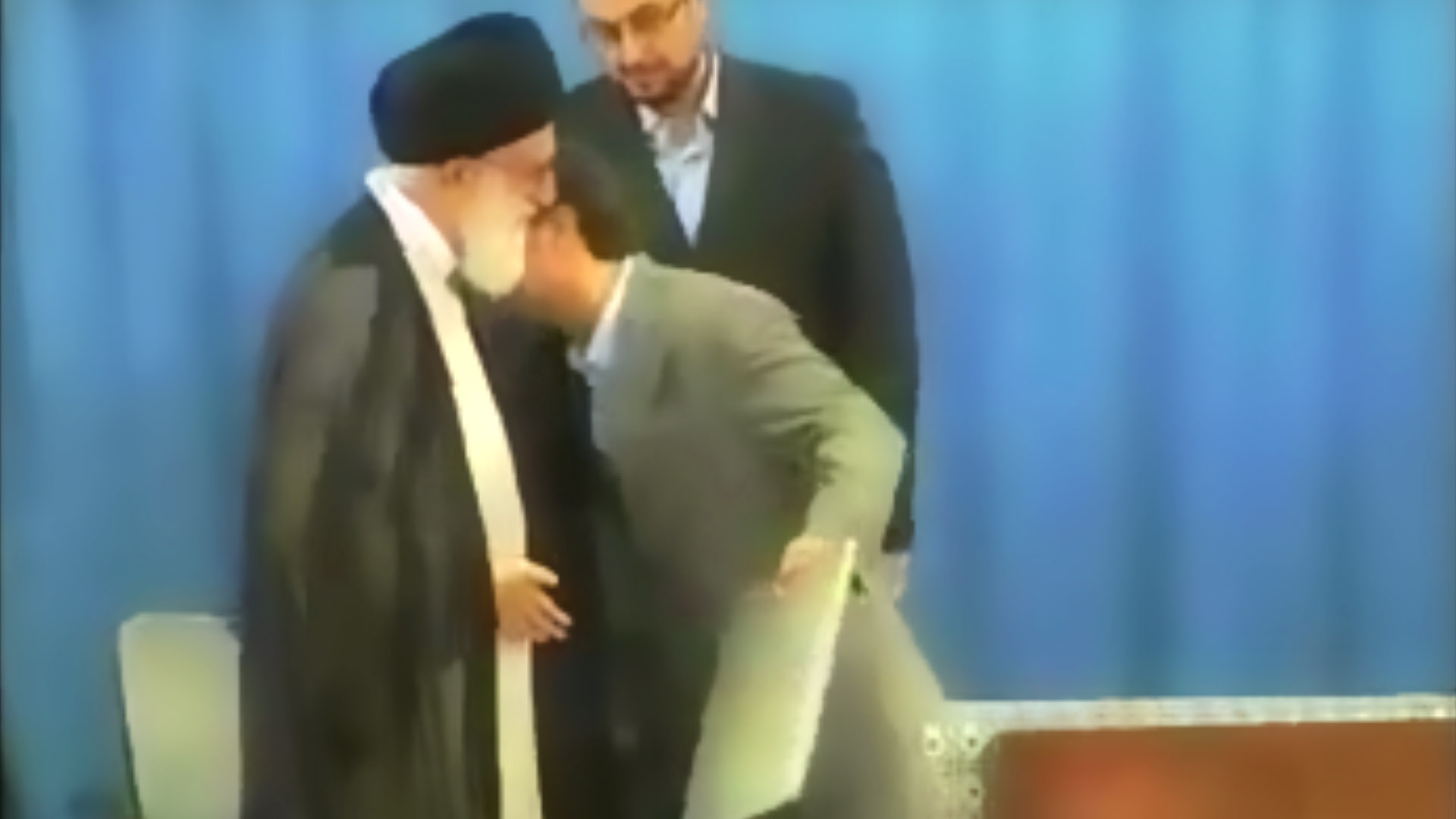All That Is Solid Melts Into Air
FILM (2013)
The ‘Supreme Leader’ in political system of the Islamic Republic of Iran holds the ultimate authority. Despite the fact that the president and members of the parliament are elected by people’s vote, at his will, the leader has the power to remove any of them. Although the leader attempts not to play a role in the process of the election or apply his views onto it directly, the position that the constitution and the Islamic regime have provided for him in the past two decades and through a variety of political and social strategies, have given him the position of an untouchable holy figure who is responsible for guiding the Iranian society morally and ethically. In fact, many of the critics of the Islamic Republic of Iran believe that it is this very position in Iran’s political system that contradicts fundamental democratic principles, and a transition to a genuine democratic system would happen only by eliminating such a position.
From the time of its establishment, the Islamic regime has well succeeded in brutally eliminating the oppositions from political and social activities, reducing the political scene in Iran down to two main parties: the conservatives and the reformists; both of which still faithful to Islam and obedient to the supreme leader. Following the 2009 presidential election though, and following the support of the totalitarian leader of Iran for Mahmoud Ahmadinejad who was the conservative candidate against the reformists, an incident occurred in the political and social climate of the country which, more than ever, challenged the position of the ‘Supreme Leader’. In the months following the election, this incident began to reflect through different layers of the Iranian society.
After the results of the presidential election came out in favour of Mahmoud Ahmadinejad, supporters of the reformist candidates flooded the streets, believing in an electoral fraud. In his speech following the election, the leader clearly expressed his support for Ahmadinejad and asked for the ‘riots’ to come to an end. The speech resulted in serious confrontations between the protesters and the government, which resulted in tens of people being killed and hundreds being arrested. It was only after the killings that for the first time on the streets of Tehran and other cities, people started shouting against the leader himself; on the other hand, the brutal measures taken by the regime against the protesters provoked a number of political and cultural figures within the main body of the government. In the months following the 2009 election these reactions were reflected through the society in different forms: from open letters blaming the leader for being responsible for the killings of protestors, to documents disclosing the supreme leader’s personal life which were being circulated amongst people. However, the indication of this challenge at its highest level was reflected at the presidential endorsement ceremony and through the Iranian national television. The supreme leader, who had thought of supporting Mahmoud Ahmadinejad as the most practical way to keep the reformists from gaining power, was now faced with Ahmadinejad’s claim on power as the highest administrative authority in the country.
At the endorsement ceremony of the president conducted by the supreme leader which took place on the 3rd of August 2009, Mahmoud Ahmadinejad who at a similar ceremony four years ago had kissed the leader’s hand and cheeks as a sign of ‘closeness and loyalty’, decided to go for his shoulder this time featuring an awkward moment between the two men.
All That Is Solid Melts Into Air was exhibited at Royal College of Arts from 15th to 19th of October 2013 as part of the Magic Of Persia Contemporary Art Prize Finalists Exhibition.



